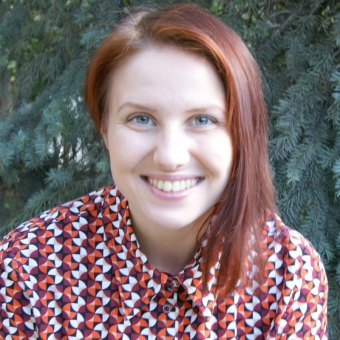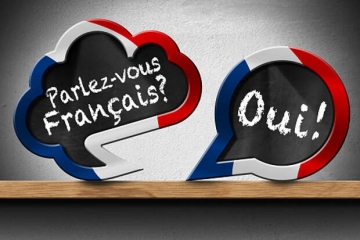
These mistakes are very common among the people who learn French.
Check yourself!
1. Incorrect sequence of the reflexive particle with the infinitive
If the doer is defined and there is the construction VERB + REFLEXIVE VERB INFINITIVE - sequence of the reflexive particle with the infinitive is required.
Je voudrais bien me promener cet après- midi. – I would like to go for a walk afternoon today.
Tu peux te réveiller plus tard. – You can wake up later.
Vous pouvez vous arrêter ici. – You can stop here.
2. It’s incorrect to answer «yes» to the question negatively. An affirmative answer to this question that means «yes» will be Yes, I do (If it’s Present Simple. It depends on the tense because in Present Perfect it will be Yes, I have and so on.)
Tu n`as pas compris? – Si, j`ai tout compris. – Didn’t you understand me? Yes, I did.
Tu ne vas pas à Paris? –Si, j`y vais. – Don’t you go to Paris? Yes, I do.
Pierre n’est pas rentré? - Si, il est dans sa chambre. – Yes, He did. He’s in his room.
3. The words ¬gentil/gentille «polite» in English are very popular. You should pronounce the endings correctly according to the speaker’s gender and person you are talking to will smile in return but won’t look at you reproachfully.
4. Politeness is very important in France. Such phrases like «mille mercis» and «mille excuses» are often used in speech. Unfortunately, not all the people remember that the word «mille» - «thousand» doesn’t change and doesn’t have the plural form. The set expression «milles excuse» is incorrect.
5. Check diacritical marks when writing: one mark can totally change the word meaning.
Compare these examples:
Le gène – gene, la gêne – discomfort, tension.
Pécher – to sin, pêcher – to fish
6. Incorrect usage of prepositions after verbs se rappeler, souvenir de ( remember, recall)
Correct usage:
Je me rappelle tout. - I remember everything.
Je me souviens de tout. – I recall everything.
7. Je vais au docteur – common mistake is incorrect usage of preposition.
You have to say chez in such phrases.
Correct usage:
Je vais chez le docteur / coiffeur, dentiste... – I go to the doctor/barber/dentist.
The preposition à points a place but not a person.
Compare these examples:
Je vais à la pharmacie – I go to pharmacy.
8. What to choose – «second» or «deuxième»? Both words mean the second. Remember: deuxième is used when we have the third, the forth and so on. Second is used when we talk about something in general and don’t assume anything else.
Look at these examples:
Seconde Guerre mondial. – Second World War
Au cours du second semestre de 2018 – in the second half of 2018
La Deuxième et la Troisième Commission de l’Assemblée générale. – The second and the third meeting of National Assembly.
Être deuxième sur une liste. – To be the second on the list.
9. If negation refers to the verb, you should use both negative particles before the infinitive.
Pour ne pas avoir froid, il faut marcher vite. – Not to be cold you should walk fast.
Je te demande de ne pas parler de ça. – I ask you not to talk about it.
10. Besides Frenchmen can say je suis sur l’Angleterre,
sur Paris, sur le Pérou.
It is a mistake. The preposition sur is used for location of some subject.
le livre est sur la table. – The book is on the table.
If you are talking about your location, you should say: Je suis à Paris, à Moscou, à Londres / I’m in Paris, in Moscow, in London.
You should not repeat native speakers’ mistakes.
Be bent on speaking French correctly; develop your feeling for language and along with that a sense of beauty.
Order a course of French via Skype from Skype-Language.com!






























